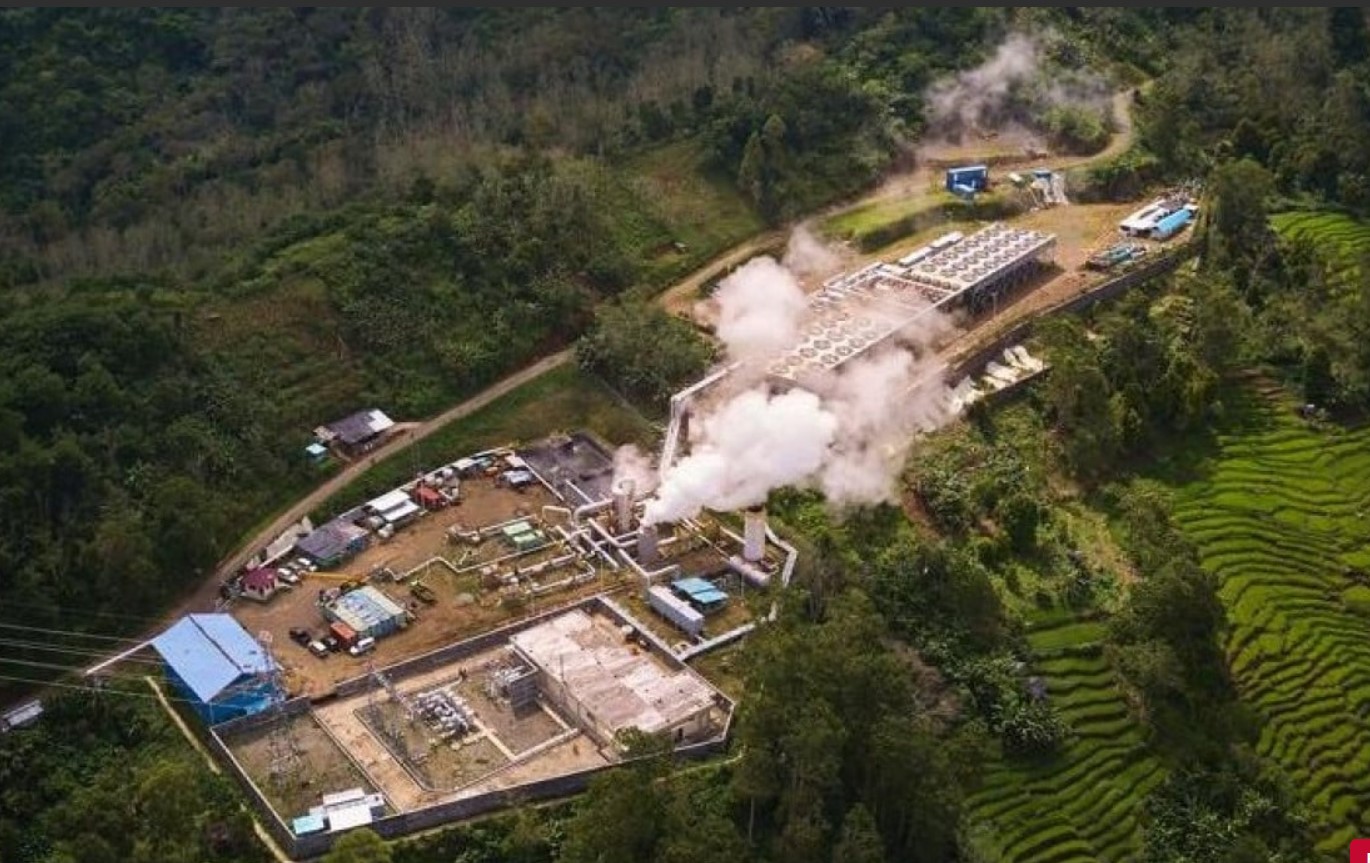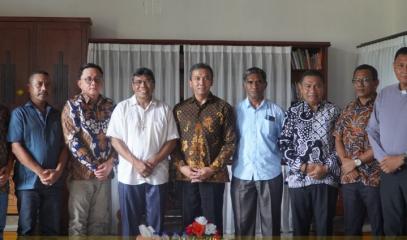Ende: Government pressures archbishop opposed to geothermal plant
Senior officials from the Ministry of Energy met with Monsignor Kleden to discuss development projects. The prelate confirmed the Church's opposition, to protect the population and the territory. In the area, 80% of the inhabitants are farmers. Behind Jakarta's pressure are the interests of multinationals.
Jakarta (AsiaNews) - A meeting that ended in stalemate and a new position, harsh in tone and critical in content, from the Archbishop of Ende, on the island of Flores, in the Province of East Nusa Tenggara (NTT).
The clash between Monsignor Paulus Budi Kleden and the Indonesian government has entered a new chapter, after the courtesy visit - at least on paper - made in March by a special envoy from the Ministry of Energy and Mineral Resources (Esdm).
After more than an hour of heated debate, the prelate vigorously rejected the plans for the construction of geothermal power plants in Mataloko and other locations in the territory, which would end up causing serious environmental damage and disrupting the life of the population. This is in one of the few areas with a Catholic majority in the most populous Muslim nation in the world.
Behind the ministry's decision to meet with Catholic leaders is an attempt to ‘minimise’ the profound distance between government plans and the resistance of the archdiocese and the prelate who, even more than the unbridled development, is fighting for the environment and the interests of the population. In a note published in the days following the visit, sent for information to AsiaNews, Monsignor Kleden reaffirms the position of the diocese as illustrated last January and reiterated in the Pastoral Letter 2025 for the Jubilee Year and in the letter for Lent. ‘The rejection of the geothermal development project,’ emphasises the prelate, “stems from concerns related to the context of the archdiocese [including] mountainous and hilly areas, which leave limited land for settlements and agriculture. From an occupational point of view, almost 80% of the inhabitants of the archdiocese's territory are farmers”. Furthermore, the statement continues, Ende's crops depend ‘to a large extent on rainfall, as surface water sources are scarce. Improper use of water resources could cause damage and water shortages, posing a significant social problem for the community’.
In 2017, the island of Flores was officially declared by Jakarta as a potential site for the exploration of suitable locations for geothermal plants, with at least 17 projects under consideration, some of which have already been assigned to the localities of Daratei and Mataloko in the Ngada area. In recent years, investors and other parties have taken a series of actions to persuade local chiefs and Church leaders to support the so-called ‘national strategic projects’. In reality, they are interested in mountainous areas that are true natural paradises, but where forms of degradation are already increasing in the name of economic ‘development’. The inhabitants themselves denounce threats to public health, as well as phenomena such as the deterioration of housing conditions due to undesirable materials and the decrease in the fertility of agricultural land.
The designation of Flores as a geothermal island is part of Indonesia's energy transition programme under the Just Energy Transition Partnership (JETP), with an investment plan of up to 22.5 billion dollars and among the national strategic projects. The area has an estimated geothermal potential of around 776 megawatts in 12 geothermal work areas (WKP), according to 2023 ESDM data. However, independent studies from last year show that farmers would suffer billions of rupees in income cuts during the construction of the plants and in the subsequent phases. Behind the government rhetoric of promoting a just energy transition through the use of geothermal energy - which should contribute 7,200 megawatts (MW) nationwide by 2025 - lies a serious threat to the ecological sustainability and livelihoods of local communities.
In several regions, projects to develop geothermal power plants (Pltp) have increased seismic risks, land subsidence, damage to aquifers, loss of livelihoods, as well as the release of greenhouse gases and toxic emissions such as hydrogen sulphide (H2S). Furthermore, these projects threaten forested areas, as some of them operate within wooded regions.
ESDM data reveals that of the 12 geothermal working areas (WKP) in Flores, 70% are controlled by five large companies, affiliated with multinationals. Environmentalists and critics point out that instead of reducing dependence on fossil fuels, renewables risk being entirely controlled by the same energy oligarchy. The expansion of geothermal exploitation in the area is also supported by international funding agencies. The involvement of these institutions reflects the modus operandi and global commercial relationships in the energy sector, binding developing countries into financial schemes that often neglect human rights, particularly those of local communities and surrounding ecosystems.








.png)










